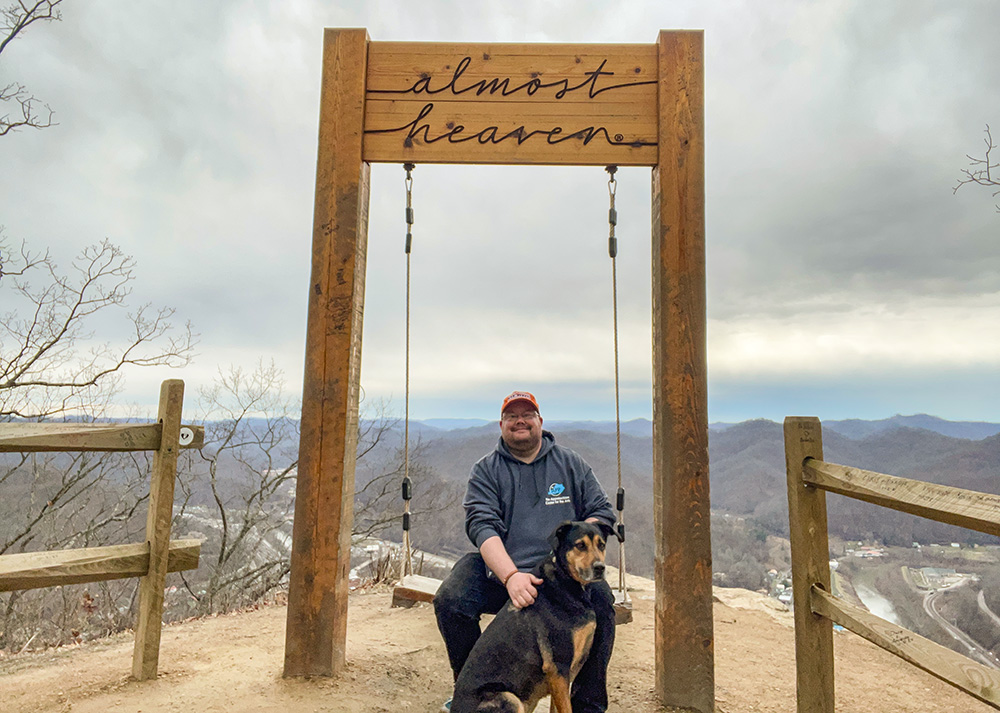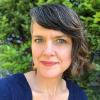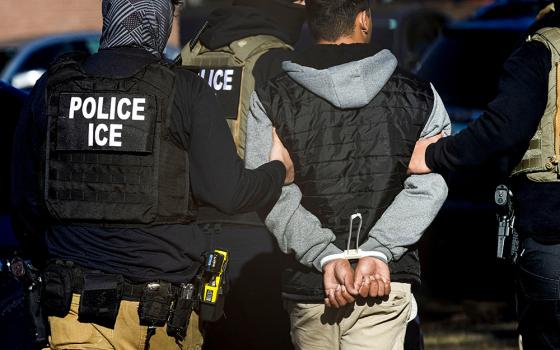
Br. Christian Matson hikes with his dog, Brother Odilo ("Odie"), in West Virginia. (Courtesy of Christian Matson)
When U.S. President Donald Trump was signing a flurry of executive orders, including one asserting there are only two genders, Br. Christian Matson was praying, fasting and performing acts of penance.
Matson, the Catholic Church's only known openly transgender brother, had been grappling with a sense of urgency shared by many LGBTQ Catholics as the nation entered a second Trump presidency.
In an executive order signed by Trump, the government recognizes just two sexes — male and female — based on biological sex assigned at birth. It mandates the use of "sex" rather than "gender" in government documents, including passports and visas, and seeks to eliminate policies that allow individuals to self-identify as a gender different from their biological sex.
The order blocks taxpayer funding for gender-transition health care and mandates that single-sex spaces, like prisons and shelters, be segregated by biological sex.
"Being trans is not an ideological position," Matson said. "It is a biological phenomenon. It's an objectively existing biological phenomenon."
Matson expressed particular concern for trans individuals whose legal documents have yet to be updated.
"I know trans folks who don't have passports or who have not yet gotten the marker changed, and now they probably won't be able to for the next four years," he said. "This can cause difficulties for them, including safety difficulties if they appear as one sex, but their passport has another sex, especially if they're traveling to certain countries."
Matson asked: "Is the government now going to issue me a female-marked passport, even though I've had a beard and male pattern baldness for 20 years?"
In the months following the election, Matson has worked to build support groups, collaborating with organizations such as DignityUSA and Fortunate Families, which launched a transgender ministry last year, and to create regular check-ins for transindividuals.
Advertisement
In his campaign for president, Trump cast trans people as a threat to the country and he said he will pressure Congress to prohibit such interventions for youths in all 50 states.
There are a few signs of hope, Matson said. While some hospitals have already canceled prescriptions and turned away new patients under age 19, several states — including Massachusetts, Washington and Minnesota — decided not to comply and instead enacted sanctuary laws to protect gender-affirming care and patient privacy, refusing to share medical information with other states.
Matson became a diocesan hermit in 2022 after years of seeking religious life. Despite being praised as an exemplary candidate by Jesuit vocation directors, he was rejected and prohibited from joining the congregation due to his "medical history" and concerns about obedience under superiors.
"I felt like I wasn't really being listened to," Matson said in an August 2024 interview. His perseverance led Bishop John Stowe of Lexington, Kentucky, to welcome him in 2021 in his diocese, where Matson made vows as a diocesan hermit, renewing them in 2023.
In an interview before the inauguration, Stowe said he was still in shock from the November election.
"I still struggle with even understanding the reality of how this can be possible, that after all that we've seen from a first Trump administration, we would be bringing him back into office once again," Stowe said.
The Lexington bishop said that practical steps are being taken within his diocese to support all vulnerable communities, such as immigrants. "We are working on programs for people to know their rights. We're lining up legal resources for those whose rights are likely to be violated," Stowe said.
Dominican Sister of Peace Luisa Derouen, who has ministered among the trans community since the 1990s, said, "It's the children for whom I most fear."
What gives Derouen hope, she said, is that "family members and allies increasingly are standing up and speaking out for trans people and with them."






